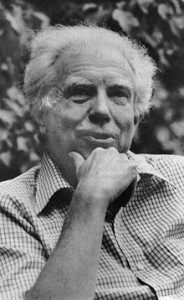
Adams concert also a Carter memorial
On Saturday, the American composer John Adams returns to the New World Center for a concert featuring the St. Lawrence String Quartet and the New World Symphony in one of his new works, Absolute Jest, and one of his established pieces, Slonimsky’s Earbox.
Adams is one of a handful of people on the tiny list of names of leading American composers, and his admiration for the work of New World founder Michael Tilson Thomas is the primary inspiration for Absolute Jest, which draws on themes from the scherzi in two of Beethoven’s late string quartets (Opp. 131 and 135). [You can see him talk about it here, in an interview for the San Francisco Symphony, which premiered it in January.]
And while Adams’s new piece is the chief draw, this all-American program contains one other work: The Variations for Orchestra of Elliott Carter. This is probably the first public performance in South Florida of Carter’s music since his death earlier this month at the astounding age of 103. Indeed, he would have turned 104 on Dec. 11, and he was writing until virtually his last breath, finishing his last work, a piano piece, in August.
The Variations, written in 1953 (he talks about it here), is an important piece in the composer’s canon, not least because it has that feature of Carter’s basic style for which he is best-known: A texture of lines, moving independent of the kind of central harmonic structure or narrative arc with which the average listener would be familiar. That’s not a very helpful description, perhaps, but what Carter has said he was trying to do was represent contemporary reality differently, with a “more dynamic and changeable approach.”
[Here he is only last July, talking to the fine American cellist Alisa Weilerstein about his Cello Concerto, which she recorded on a disc with the late Cello Concerto of Edward Elgar.]
Looked at that way, Carter was way ahead of his time, writing a kind of music for a society that doesn’t exist yet, one in which aural and physical reality are a lot alike, seemingly random and undifferentiated, and without the felt need for people to make sense of it through a work of art like a folksong. Musical works of art reflect the time and place in which they were written but they also freeze it, and it seems to me Carter was after a different kind of timelessness, one more evocative of the breadth of shared human experience.
One of the last things he was reading was Balzac’s Human Comedy, in French, on a Kindle, according to a Bloomberg piece earlier this year. Those novels have that same kind of appetite for mid-19th century French society in all its forms that Carter did for his, and this Saturday’s performance of the Variations should go some way toward underlining that.
I’d go so far as to say that the concert stands fair to be a milestone for classical music here in that it will feature contemporary American composition by one of its most eminent living practitioners and one of the most significant figures of its remarkable past. Thomas and the New World have done great service for American music over the years (I’ll never forget cellist Fred Sherry’s playing of Charles Wuorinen’s Five a few years back), and this concert will surely be a distinguished addition to that legacy.
John Adams and the New World Symphony, with the St. Lawrence String Quartet, perform at 7:30 p.m. Saturday in the New World Center, Miami Beach. Visit www.nws.edu for tickets or call 305-673-3331.
Recent Content
-
Artsarticle ·
-
Artsarticle ·
-
Artsarticle ·

